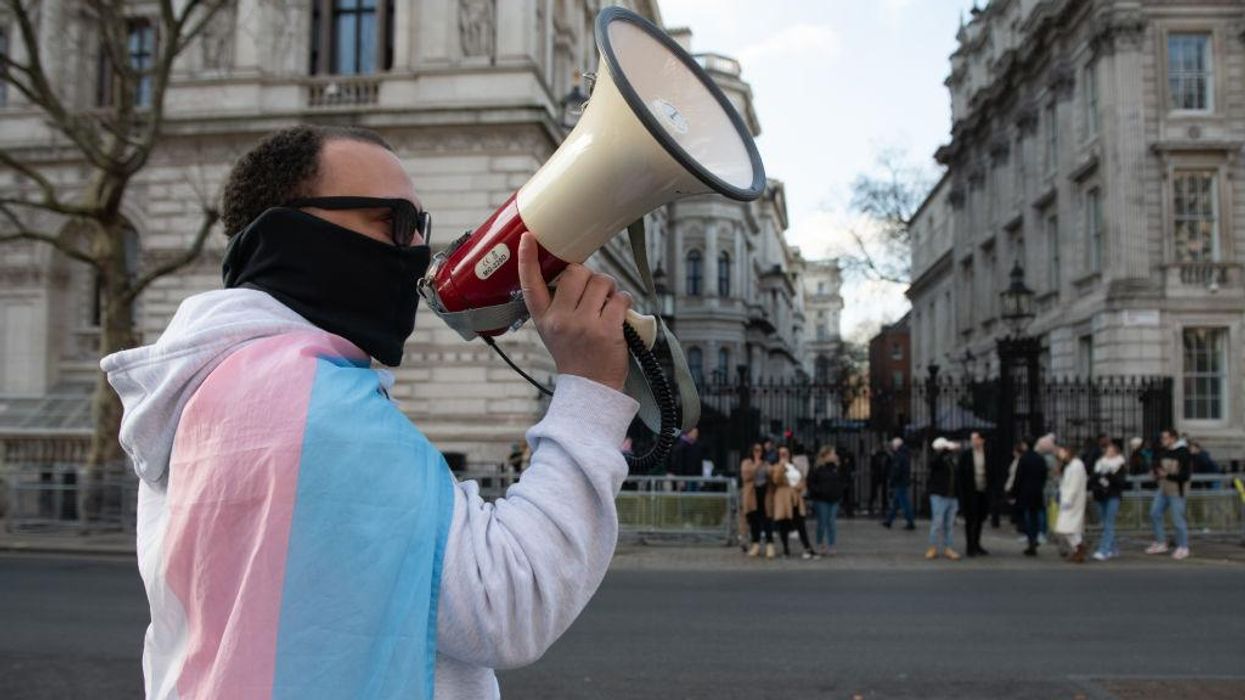
Photo by Mike Ruane/SOPA Images/LightRocket via Getty Images

The Colorado State University Health Network plans to host multiple vocal workshops this week to teach transgender and non-binary students to alter their voices to sound feminine, masculine, or neutral, the Daily Caller News Foundation reported.
According to the CSU website, the university will host three sessions teaching transgender and non-binary students how to change their voices to better align with their chosen gender identity. All three courses are free and offered to students regardless of whether they are on hormonal therapy.
"Voice Feminization Workshop," the first course, will be held on January 31, and it welcomes "transfeminine and nonbinary individuals" to attend. The class promises to introduce attendees to "vocal exercises utilized for voice feminization."
A "Voice Neutralization Workshop" will be held on February 1 to teach non-binary individuals how to make their voices sound neutral and neither feminine nor masculine.
"The class provides an overview of vocal features related to perceptually masculine, feminine, and androgynous voices," the website states.
CSU will host the final session, a "Voice Masculinization Workshop," on February 2, which seeks to train "transmasculine and nonbinary individuals" how to alter their voices to sound more masculine.
Maggie Hendrickson, the director of the Pride Resource Center, told the university's news publication, the Rocky Mountain Collegian, "We really don't want people to think that they have to be like on hormones, or so far along in their transition, or out, or any other precursors to coming to the workshop."
"It's just another way for people to feel more comfortable in their bodies," Hendrickson continued. "A lot of people just think about transitioning as like, hormones and surgery, but there's lots of other ways to socially or culturally or not medically transition. It's really [for] people [who] are interested in voice training or experience any type of dysphoria that they think this could help with. That's who the intended audience is for, and so this is just another tool for folks to kind of explore gender and the way that they're received by others."
The courses will be facilitated by Annie Schubert, a certified speech-language pathologist and clinical vocologist at the Speech and Language Stimulation Center in Fort Collins.
The center offers multiple voice programs, including "Transgender Voice Services," which aim to train clients to modify their voices to sound like the opposite gender. The training works on altering pitch, resonance, and intonation patterns.
"Driven by each client's goals and gender identity, we provide voice training services for transgender or gender-diverse clients seeking to modify their voice," the Speech and Language Stimulation Center website states. "At SLSC, we prioritize using both objective feedback from voice analysis software as well as each client's self-analysis of their speech samples across the duration of training. Above all, it is our goal to provide a supportive environment for each client on their path toward confidently presenting their gender identity."
Schubert told the Rocky Mountain Collegian that the introductory courses also teach "vocal hygiene" and "healthy voice principles" to ensure individuals do not cause strain or injury when attempting to modify their voices.
"We talk about the different vocal features that lead to a listener to perceive a voice to be more feminine or masculine, or in that kind of gender-neutral range, and then we break it down into its parts," Schubert stated. "So [that means] learning about the difference between average pitch and pitch variation and the different prosody and intonation patterns that lead a voice to be perceived more masculine or more feminine."
Schubert, CSU, and the Health Network did not respond to a request for comment, the Daily Caller News Foundation reported.
Like Blaze News? Bypass the censors, sign up for our newsletters, and get stories like this direct to your inbox. Sign up here!